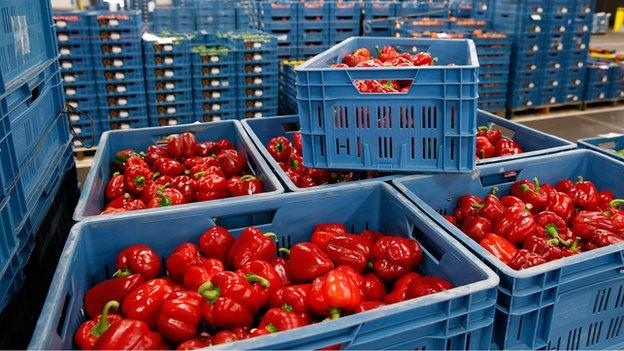Russians shocked as banned Western food destroyed
- Published
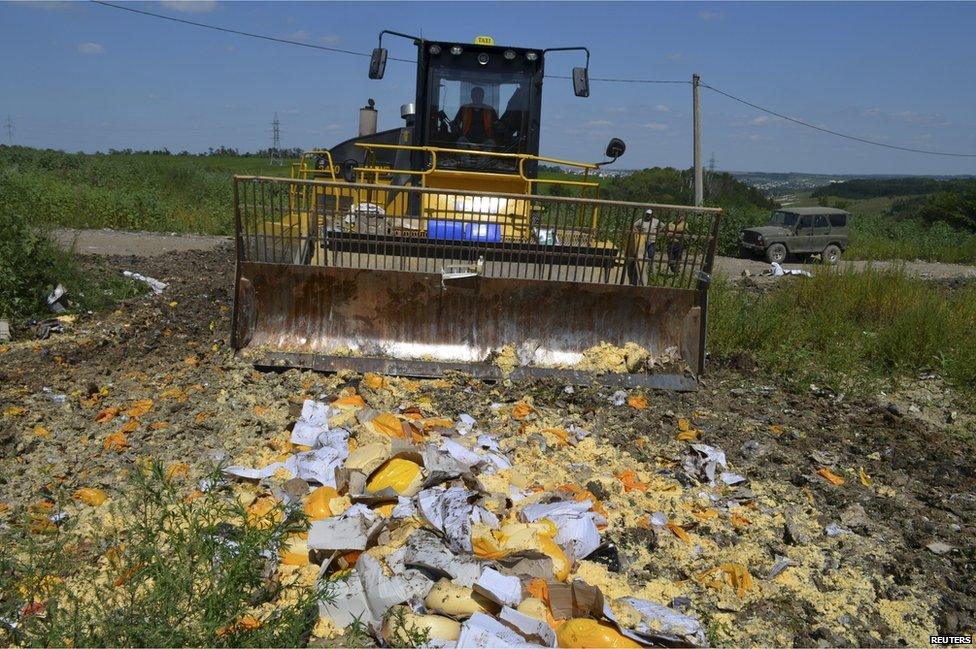
Belgorod, western Russia: A bulldozer destroys banned foreign cheese
The sight of vast amounts of banned foreign food being bulldozed, buried or burned is causing controversy in Russia.
Tens of thousands of people have joined a protest petition to President Vladimir Putin.
For the past year, Russia has banned most fresh produce from countries imposing economic sanctions against Russia over the illegal annexation of Crimea. Now anyone caught breaking the ban will have their produce seized and destroyed.
As the presidential decree came into effect on Thursday, state TV ran reports accompanied by vivid images of huge, round cheeses being dumped and crushed.
Reporters hailed a crackdown on contraband, but many Russians are deeply disturbed by the development.
"If they start destroying food, what next? It's like our authorities don't care about the people," argues Muscovite Olga Saveleva, who has launched an online petition against the decree. It has attracted more than 285,000 signatures.
The BBC's Sarah Rainsford spoke with Olga Saveleva who started an online petition to stop the food wastage
She says Western sanctions against Russia have already fuelled inflation and helped push more people into poverty.
"One pensioner wrote and said 'I can't eat, I can't buy this or that, so if you want to destroy produce, bring it to my home. I can eat it!'," Ms Saveleva recounts.
Supermarket raids
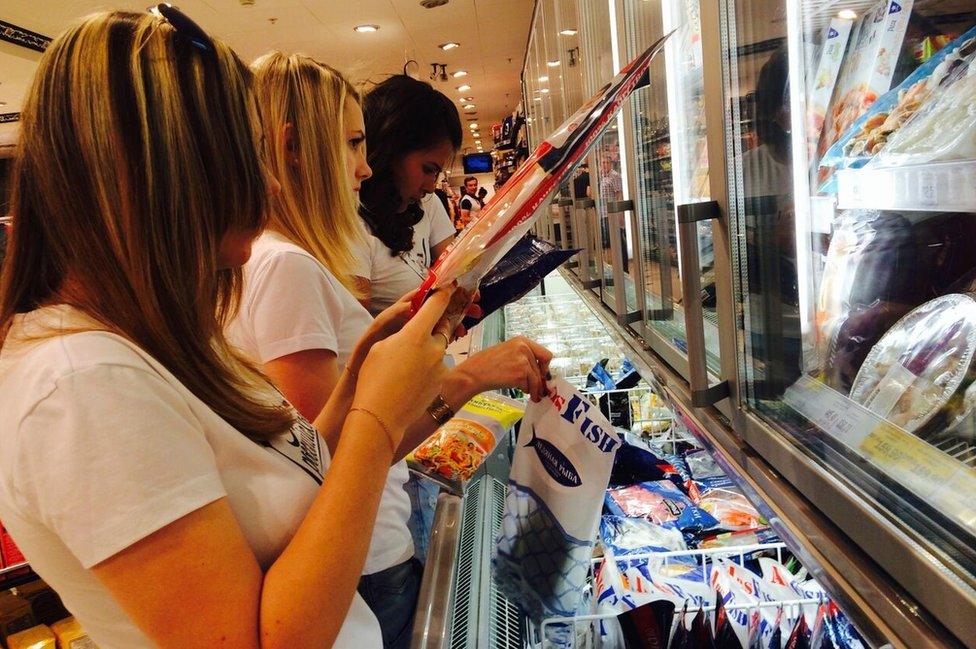
Vigilante pro-Putin patriots now inspect supermarket food
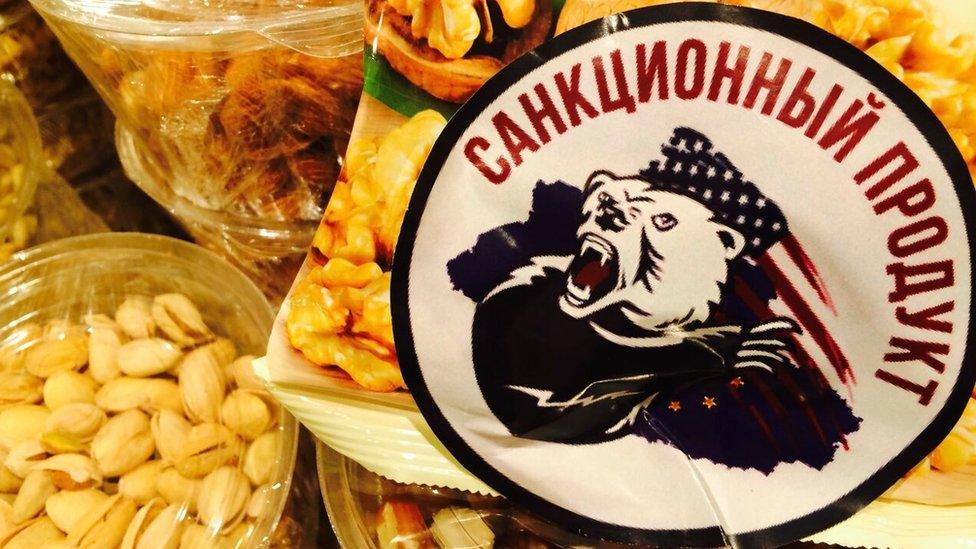
The volunteers slap Russian bear stickers saying "sanctioned produce" on banned food
The memory of Soviet-era famines makes Russians particularly sensitive to wasting food. But President Putin's decree has its cheerleaders nonetheless.
This week a group of girls in T-shirts emblazoned with the slogan "Eat Russian" descended on a Moscow supermarket and began scouring the shelves for sanctioned foreign goods. Their raid eventually unearthed some illicit French cheese and bags of German nuts.
"This is prohibited!" the food patriots declared to a somewhat stunned-looking store manager, before slapping "sanctioned" stickers on the items, complete with a roaring Russian bear.
The girls believe the new law will stop such items reaching Russian shelves. Many banned items have entered through Belarus, after repacking and relabelling.
"Now everyone will know that there are sanctions," Anna explains. "If they try to get produce through now, it will be burned."
More than 285,000 people have backed an online petition calling on President Putin to give the food away, as Oleg Boldyrev reports
Problem cheeses
The move will complicate life for Russian restaurants, already facing rising prices and reduced customer spending power.
"The sanctions were a shock at first, but we adapted," says Easy Brix head chef Andrei Antonov, who explains that the restrictions have forced him to be creative.
"Our clients thought everything would run out and they'd just get potatoes - that was the joke," he laughs.
Instead, suppliers have sourced good-quality local produce or non-sanctioned alternatives - with one notable exception.
"Clearly you can't replace Gorgonzola with a Russian cheese, and a cheese plate is boring without it," the chef admits.
"I don't know where it comes from, and of course the price is different, but somehow Gorgonzola, Camembert and Brie are always available."
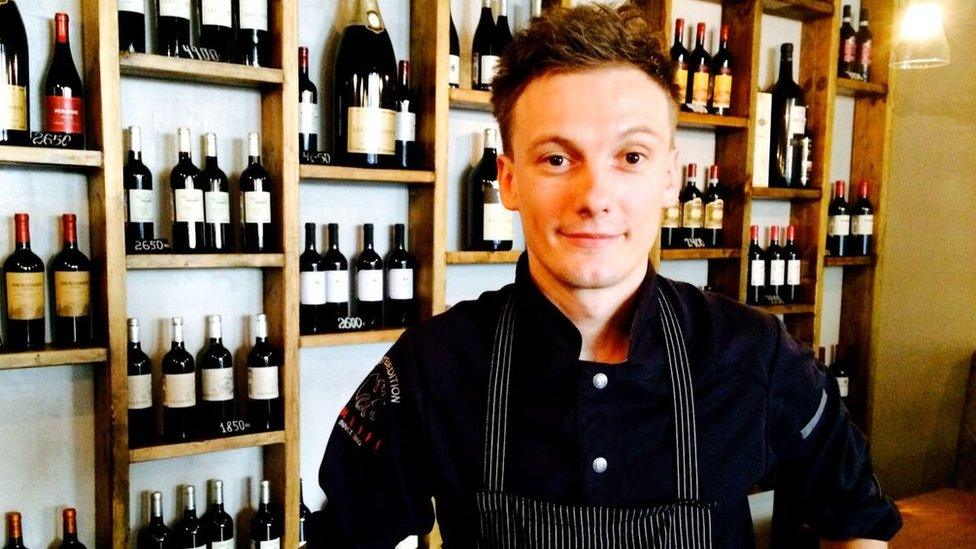
Easy Brix head chef Andrei Antonov: "A lot of people need this food"
Until this week, only importing produce from sanctioned countries was prohibited, not selling it. But the agriculture ministry now says even warehouses could be raided and produce seized.
"I think we have to distribute food, not destroy it," says activist Andrei Volkov, who helps feed around 300 homeless people in Moscow each weekend, with the volunteer group Friends on the Street.
He has noticed demand for the handouts increase over the past year, as Russia's economic crisis has deepened.
"I know there are a lot of people who need this food. Destroying it is not humane," Mr Volkov argues.
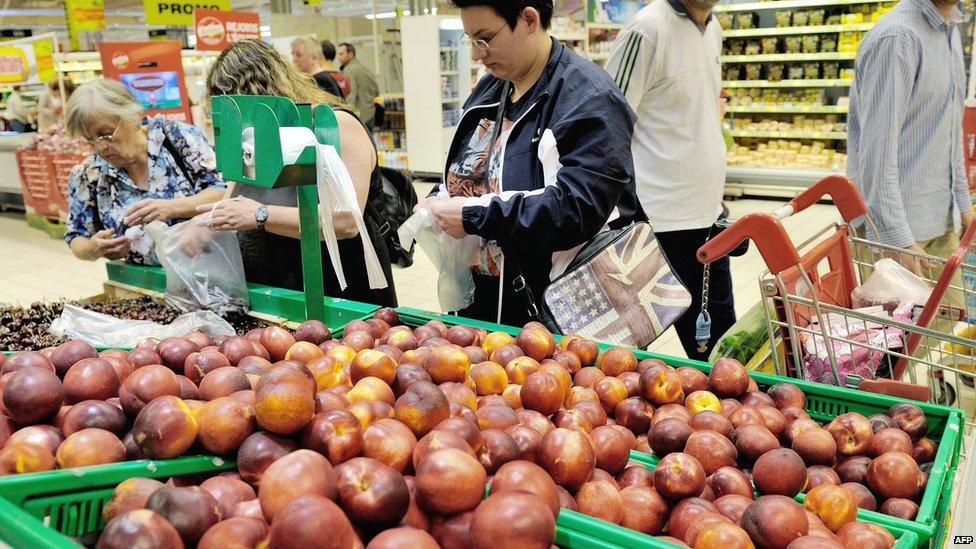
Growers of nectarines and peaches are among those hit hardest by the Russian ban
The Kremlin has urged people not to "over-dramatise" the situation.
"Visually, it probably doesn't look very nice," spokesman Dmitry Peskov conceded. But he said that the produce being liquidated was smuggled food, without paperwork, and no-one could vouch for its safety.
As for the protest petition, Mr Peskov promises that the signatures will undergo "expert" checks.
Meanwhile, President Putin's decree stands and the next batch of banned food - including piles of fresh peaches and nectarines - has already been lined up for destruction.

Russian press outcry
Mikhail Rostovskiy in the popular daily Moskovskiy Komsomolets says the authorities are behaving "like an actress in a second-rate variety show", against a "nightmarish scenario" of a failing currency, high oil prices and conflict with the West. "Domestic political stability is not everything," he writes, accusing Moscow of showing "clear contempt" for the views of ordinary people.
In the government daily Rossiyskaya Gazeta, Irina Krasnopolskaya notes that the destruction of food has provoked "quite a lively reaction". But she is sceptical of the suggestion - made by anti-poverty campaigners - that the food should have been given to the poor, saying it would be impossible to monitor the safety of food imported with fake documents.
Igor Tsukanov in business daily Vedomosti says the decision is no more than an empty gesture. "Could the source of the joy with which our authorities are destroying imported cheese and apples be the fact that they actually have no response to sanctions? What could we deprive Western countries of? … We'll show them our attitude, deprive ourselves of their food and then go and bury it."
Source: BBC Monitoring

- Published30 July 2015
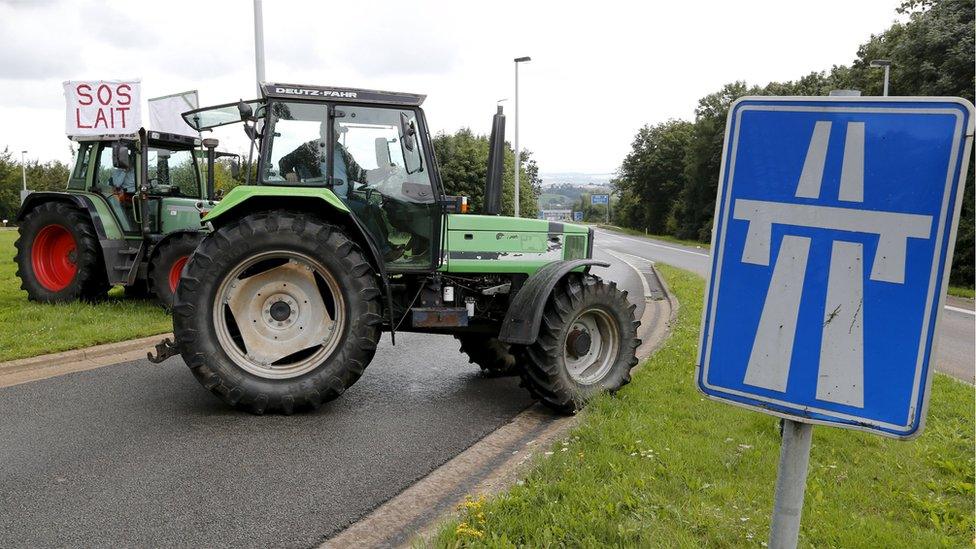
- Published31 July 2015
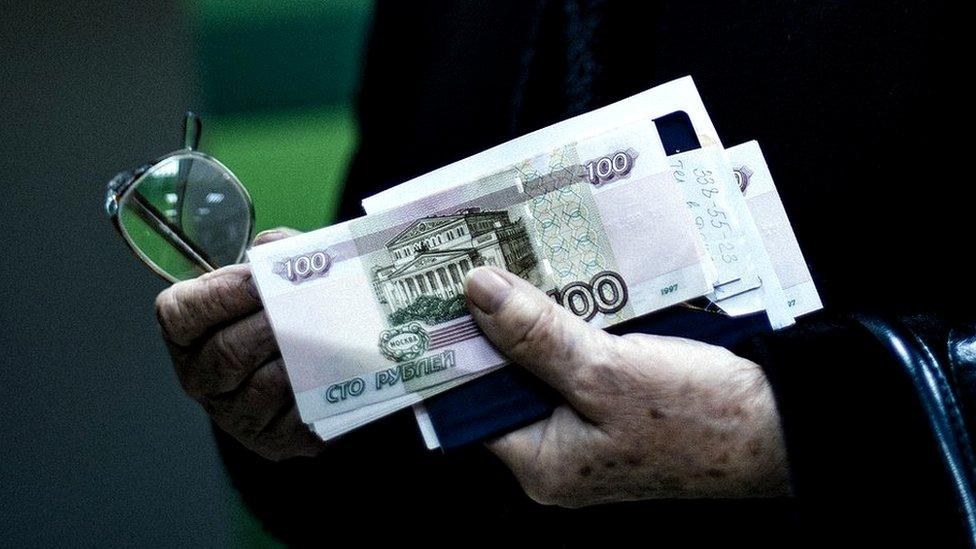
- Published15 May 2015
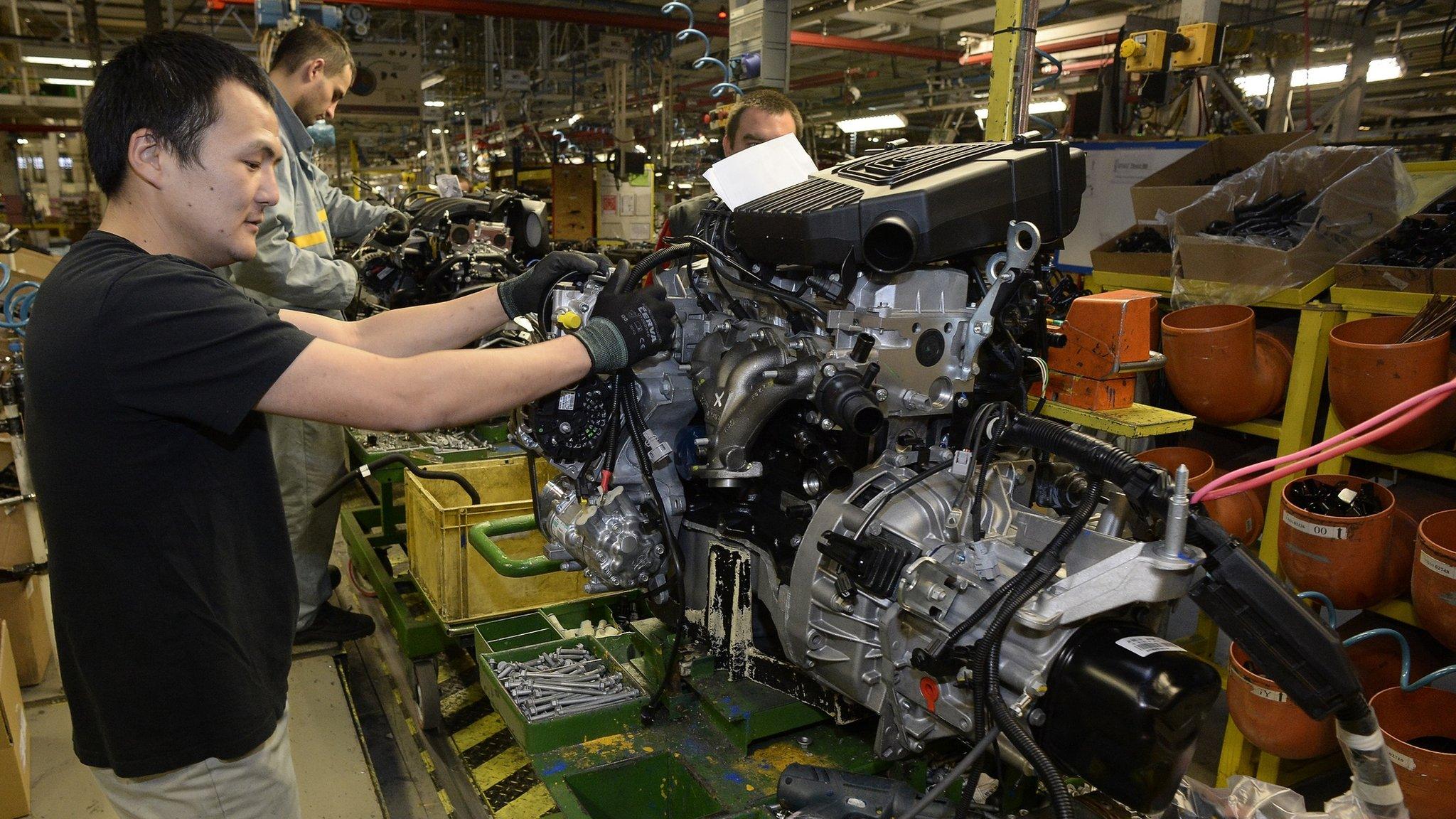
- Published17 October 2014
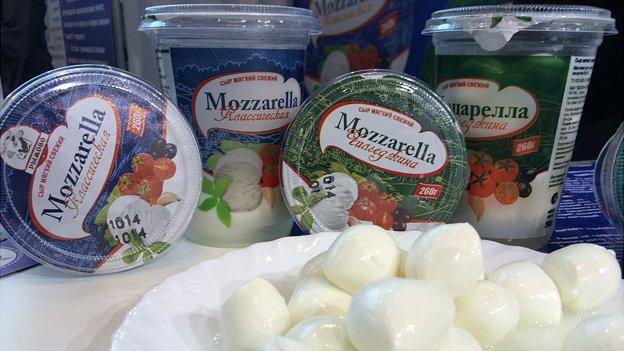
- Published18 August 2014
